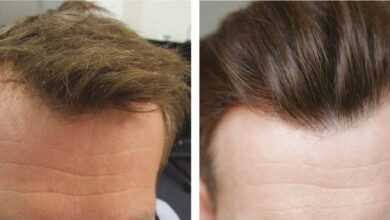The Dual Benefits of Laser Hair Removal: Hair Reduction and Sweat Management

Laser hair removal has become a staple in modern beauty routines, offering a permanent solution for unwanted hair. Beyond its cosmetic appeal, this treatment may also address a common concern: excessive sweating and body odor in areas like the underarms or groin. While laser hair removal doesn’t directly target sweat glands, its effects on hair density and skin hygiene can indirectly improve comfort and confidence. In this article, we explore how this procedure works, its relationship with sweat production, and whether it can serve as a dual solution for smoother skin and reduced sweat-related discomfort.
How Laser Hair Removal Works
Laser hair treatment uses high-heat lasers to target melanin in hair follicles, disabling their ability to grow new hair. Over multiple sessions, this leads to permanent hair reduction. The process is most effective on areas with coarse, dark hair, such as the underarms, bikini line, or legs.
While the treatment is designed to eliminate hair, its effects on sweat glands are less straightforward. Sweat glands (eccrine and apocrine) are located deeper in the skin and are not directly targeted by lasers. However, the absence of thick hair may alter how sweat interacts with the skin’s surface.
Connection Between Hair and Sweating
Sweat glands produce moisture to regulate body temperature, but thick hair can trap sweat, creating an ideal environment for odor-causing bacteria. Apocrine glands, found in the underarms and groin, secrete a protein-rich fluid that, when broken down by bacteria, leads to body odor. Hair density in these areas exacerbates this process, making sweat-related discomfort more noticeable.
Removing hair through laser treatment reduces this bacterial habitat, potentially improving hygiene and odor control. However, sweat glands themselves remain unaffected, as they are structurally separate from hair follicles.
Can Laser Hair Removal Reduce Sweating?
Research on whether laser hair removal directly impacts sweat production is mixed.
- Indirect Benefits:
- Reduced Bacterial Colonization: Less hair means fewer bacteria to break down sweat, leading to fresher-smelling skin.
- Improved Hygiene: Smooth skin allows for better airflow and easier cleaning, reducing trapped sweat.
- Controversial Findings:
- Some studies suggest minor effects on apocrine glands due to their proximity to hair follicles. For example, heat from lasers might temporarily reduce apocrine activity.
- However, eccrine glands (responsible for most sweat) are unaffected as they are located deeper in the dermis.
- Limitations:
- Laser hair removal does not treat hyperhidrosis (excessive sweating). For severe cases, medical options like Botox injections or antiperspirants remain necessary.
Practical Benefits for Sweat Management
Does laser hair removal help with sweating? While not a cure for excessive sweating, the treatment offers practical advantages:
- Enhanced Comfort: Smooth skin reduces friction and irritation, especially in summer.
- Odor Control: By minimizing bacterial growth, the treatment can improve confidence in social or professional settings.
- Cost-Effective Hygiene: Reduced hair density simplifies daily grooming, saving time and effort.
Limitations and Considerations
- No Direct Impact on Sweat Glands: Laser hair removal does not reduce sweat production. For hyperhidrosis, consult a dermatologist for targeted treatments.
- Skin Sensitivity: Temporary redness or irritation may occur, especially in sensitive areas like the underarms.
- Individual Results: Effectiveness varies based on skin type, hair color, and sweat gland activity.
Explanation of changes:
- Added subheader: The question “Does laser hair removal help with sweating?” is introduced as a standalone subheader to address the query directly.
- Flow adjustment: The original text’s first sentence (“While not a cure for sweating…”) now follows the question, clarifying that the treatment aids indirectly (e.g., odor control) but isn’t a medical solution.
- Natural integration: The phrase now serves as a transition to the practical benefits, aligning with the article’s focus on dual advantages.
Conclusion
Laser hair removal excels at permanent hair reduction, and its indirect benefits for sweat management—such as improved hygiene and odor control—make it a valuable option for those seeking smoother, fresher skin. However, it should not replace medical treatments for excessive sweating. For personalized advice, consult a dermatologist or aesthetician to weigh the pros and cons.
As research evolves, the interplay between laser technology and sweat glands may reveal new applications, but for now, this treatment remains a reliable choice for tackling unwanted hair and enhancing daily comfort.




